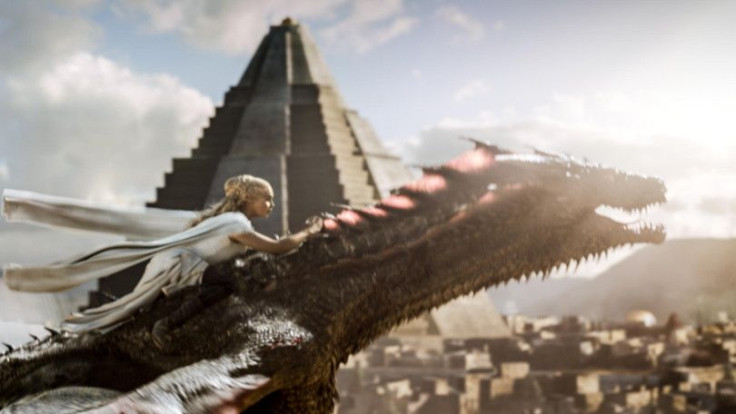Game of Thrones Season 7 is finally near at hand as the second-to-last season premieres on HBO on July 16. And with it shall come the final war between ice and fire—first, probably between Daenerys and Jon Snow, before they marry, and then between Daenerys and the White Walkers. Let’s suppose, for the sake of harmony and contentment, that Daenerys and Jon Snow successfully beat the Night King—not at all a sure thing, mind you. What happens after that? Who takes down the Tyrant Queen of Meereen? Or does Fire take the place of Ice and rule Westeros for centuries more to come?

Daenerys Targaryen is a threat to the Seven Kingdoms of Westeros. This should not be a controversial opinion. After all, she’s about to invade them with a horde of Unsullied and incredibly violent, basically uncontrollable Dothraki. Sure, the Lannister monarchy is teetering and illegitimate, but that doesn’t mean Daenerys is coming to bring peace to Westeros. Her fundamental goal is not to save the Seven Kingdoms, but to put herself on the throne that she believes she deserves by birthright. That makes her no different than Joffrey, Stannis or even Viserys Targaryen. She’s a political player as much as they were.
Between Dothraki and dragons, there’s no doubt that Daenerys will claim the Iron Throne successfully. No human force can resist her. The non-human forces, of course, are the big problem. But let’s propose that, after teaming up with Dorne, Jon Snow and the Northern houses, Daenerys smokes Cersei out of King’s Landing, nominally unites the kingdom, then—in some sort of epic conflagration—manages to defeat the Night King. It’s not necessarily going to happen by any means, but consider this the “happy ending” version of Game of Thrones that is not outside of the realm of possibility.
Trouble is, a happy ending can quickly turn into an unhappy one. Daenerys is a terrible ruler, and as far as we know, she learned relatively little from her time in Meereen. She has never spent any time in Westeros before and if you don’t count Dragonstone, she has never set foot on it. The cultural issues will be just as severe as they were in Meereen. With the near-absolute power conveyed to her by her dragons, assuming one or two of them survive, she’ll be able to rule Westeros with an iron fist—and will have every inclination to do so.
Mirri Maz Duur’s prophecy says that Daenerys won’t have any children, which doesn’t bode well for the future of the Targaryen dynasty, even if Jon Snow is along to help out. Even if an heir manifests somehow—Jon may also be a Targaryen, after all—the Targaryens are hardly known for their solid pragmatism and rationality. Daenerys’s legacy, after the White Walkers, is likely to be tyranny, either in her own generation or in the one following, even if they aren’t her own children, and not a return to peace and prosperity.
The dragons represent the ultimate power of coercion over the people of Westeros. Everyone from smallfolk to the lords of the Great Houses alike will be subject to their power, and they can’t be defeated. A new generation of dragons and a new generation of Targaryens will inevitably lead to the same problems the Targaryens engendered in the first place—corruption, incompetence and absolute rule. Daenerys alone has already shown the latter two traits in Meereen, and that spells trouble for Westeros. And the worst thing is, no one can stop her—no one except the Night King.
There are no heroes to root for here. Either Westeros will succumb to the forces of ice—the living dead—or to fire, the dragons and their master. Can anyone tread the balance?
- Fully realized, intricate world
- Compelling characters
- Plot twists you won't see coming
- Lots of ground to cover if you're new to the series
- Don't get too attached to anyone
- Two words: Sand Snakes

















